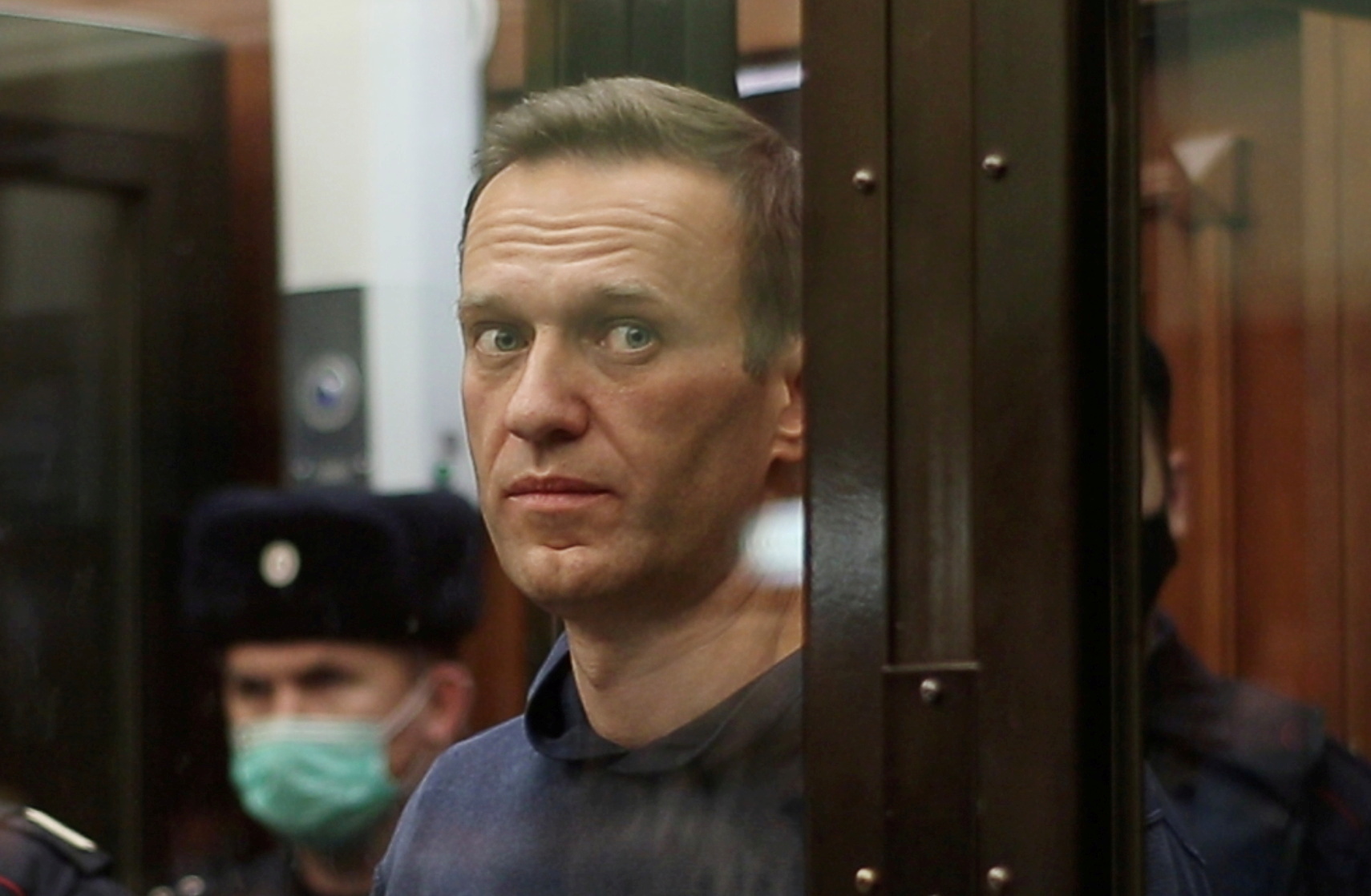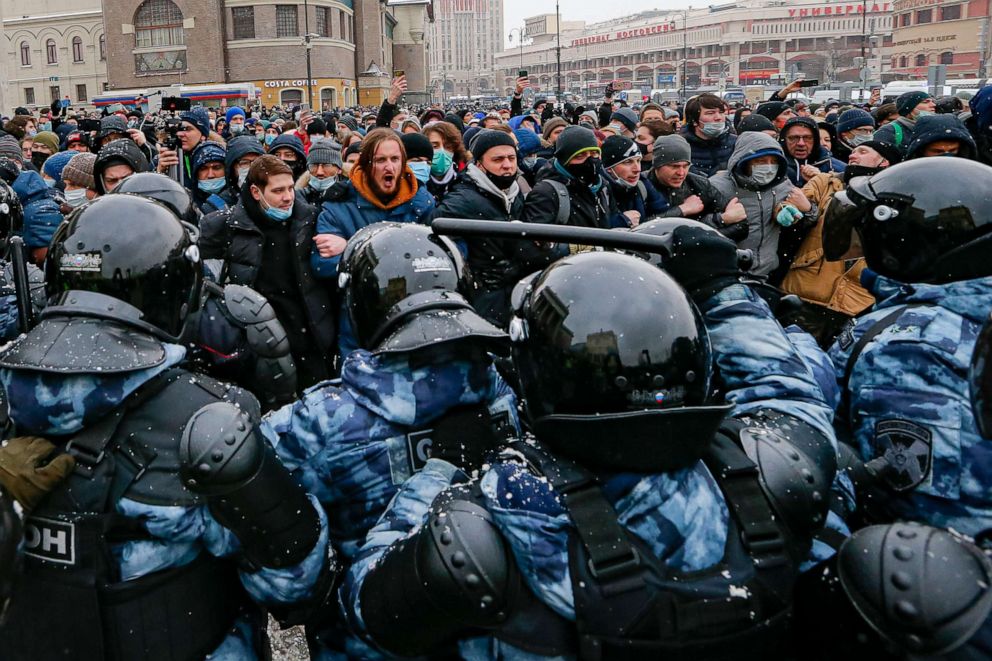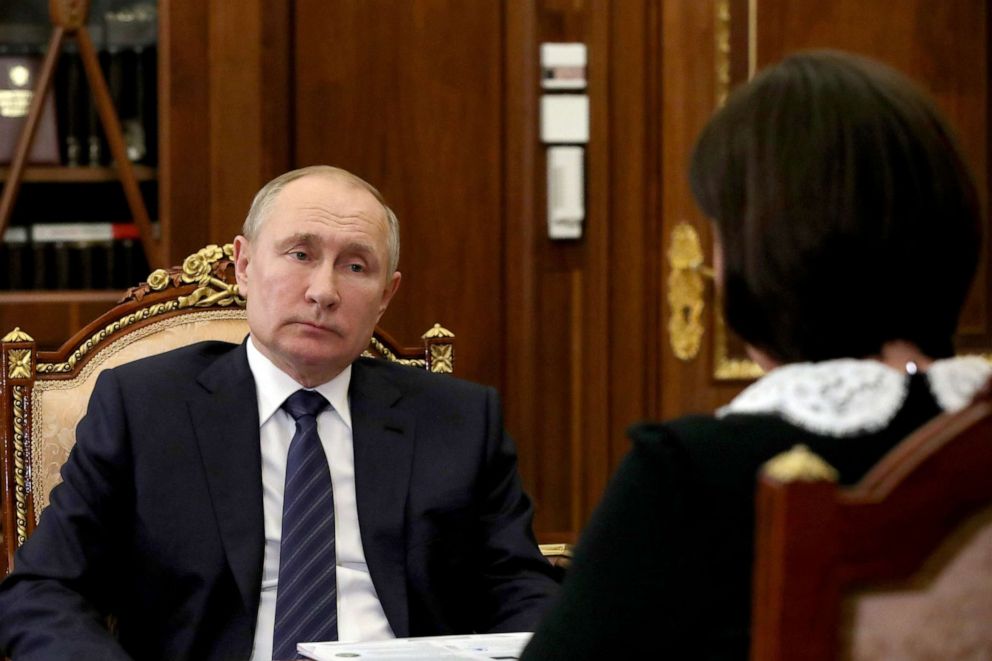Navalny's jailing marks new moment for Kremlin: ANALYSIS
A court sent the opposition leader to a prison camp on Tuesday.
When a Moscow court ruled on Tuesday to send Alexey Navalny to a prison colony for two years and eight months, the Russian opposition leader shrugged and smiled.
Earlier, he'd told the judge he hoped people would view his jailing not as a show of the Kremlin's strength but rather a "demonstration of weakness."
The decision to imprison Navalny is a landmark moment, one that many observers in Moscow say underlines how the Kremlin has entered into a new, more repressive phase under President Vladimir Putin.
Navalny's jailing makes him Russia's most high-profile political prisoner since Mikhail Khodorkovsky, who was Russia's richest man before he was sent to a prison camp in 2003 on tax evasion charges widely viewed as punishment for challenging Putin.
Just as with Khodorkovsky, the Kremlin has decided removing Navalny is worth whatever international criticism is leveled, but what's new is that the Kremlin now seems unwilling to permit any public opposition at all.

Authorities have met protests triggered by Navalny's arrest over the past two weeks with unprecedented force. Over 5,400 people were detained during protests across Russia on Sunday, and more than 1,400 were detained on Tuesday after Navalny's verdict.
"Before the Kremlin tried to be unpredictable, politically flexible. Now a clear signal has been given: The games are over," Tatiana Stanovaya, founder of R. Politik, a political think tank, wrote on Telegram.
Navalny has been jailed before for short periods, as well as harassed and ensnared in legal cases, but the Kremlin has never before imprisoned him for years because, most observers believe, it wasn't worth the political fallout -- or the risk of further elevating his stature.

But that calculation clearly changed, evident in the decision last summer to try to murder Navalny with a Novichok nerve agent. Substantial evidence indicates was attempted by by a hit squad from Russia's domestic intelligence agency, the FSB. Russia denies poisoning Navalny.
His jailing on Tuesday shows the Kremlin believes he's now less of a threat as a prisoner -- and part of a wider crackdown. Most of his team have been detained in the past two weeks, amid a wave of house searches. On Wednesday, Sergey Smirnov, editor-in-chief of Mediazona, a prominent independent news site that focuses on rights abuses, was sentenced to 25 days in jail for allegedly calling for people to join protests in support of Navalny. His crime, according to police, is that he retweeted a post on Twitter that compared Smirnov to a photograph of a popular Russian rock star and which contained the time and date of the protest.
"A flywheel has been set in motion, which is unleashing very powerful repressive inertia -- against any example of 'outside-the-system-ness,'" Stanovaya wrote. "It will touch activists, journalists, bloggers, media, NGOs and also any accidental passersby, witnesses, students, teachers."
Putin's approval ratings remain relatively high but have eroded in recent years as the nation's economy has stalled. In that context, Navalny's anti-corruption investigations that claim to expose the ill-gotten opulence of Russia's leaders have landed more loudly, seen by tens of millions.
The Kremlin clearly feels less secure and so has moved to tighten the screws more broadly, well beyond Navalny. Russia's Parliament late last year passed a raft of new legislation that gives the government even broader powers to squeeze civil society organizations and punish protests. The legendary investigative newspaper Novaya Gazeta described the laws as having the potential to "effectively curb Russian civil society for good."

Those laws were brought in following the mass protests that nearly toppled the neighboring dictatorship of Alexander Lukashenko last summer. Authorities there have regained control through relentless repression, arresting thousands of demonstrators every weekend.
The scenes at the protests across Russia the past two weekends have made it hard not to think of Belarus. But there are key differences, most important that, at least for now, the numbers protesting are vastly smaller and Putin remains popular.
In believing the Kremlin must now rely on hard repression, some observers in Moscow said Putin is committing a mistake the Kremlin had tried to avoid for years. The protesters pouring into the streets, inspired by Navalny's moral courage in returning, regardless of his own consequences, are shifting attitudes among Russia as a whole.
"There were few dissidents in Soviet times, but their moral righteousness slowly eroded the regime," Andrei Kolesnikov wrote recently in The Moscow Times. "Now there is no hope for a new Mikhail Gorbachev, and the masses are inert and apathetic, but the moral cause of those gathering in the streets of Russian cities of all sizes is undermining the foundations of the Putin regime."
Navalny, in risking a return to Russia, appears to believe the same.



